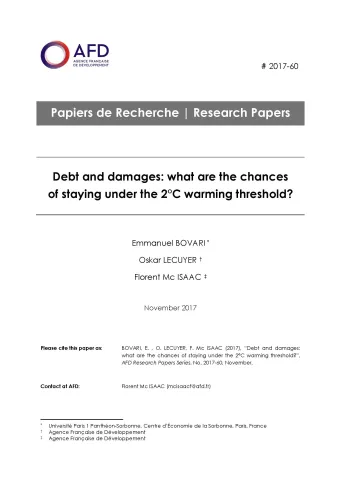Share the page
Debt and damages: what are the chances of staying under the 2°C warming threshold?
Published on

In a stock-flow consistent macrodynamic model featuring two crucial endogenous destabilizing channels, namely debt accumulation and climate change, we perform a sensitivity analysis on four fundamental parameters of the climate and economic systems: the climate sensitivity, the inertia of the carbon cycle, the labor productivity growth, and the share of damages sustained by the capital stock. We find that we have a mere 0.36% chance of achieving the 2°C warming target of the Paris Agreement in a no policy scenario, while a carbon tax and a subsidy to mitigation efforts increase that probability to 5.64% and 25.6% respectively. We also investigate the trade-off between mitigating climate change damages and staying in a sustainable debt trajectory. While implementing effective climate policies comes at the cost of increasing the debt burden, the increasing risk of over-indebtedness seems to be limited even for very stringent policies.
Useful Information
-
Authors
-
Emmanuel BOVARI, MCISAAC, Oskar LECUYER
-
Coordinators
-
Florent Mc Isaac
-
Edition
-
60
-
Number of pages
-
21
-
ISSN
-
2492 - 2846
-
Collection
-
Research Papers
